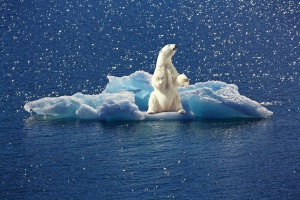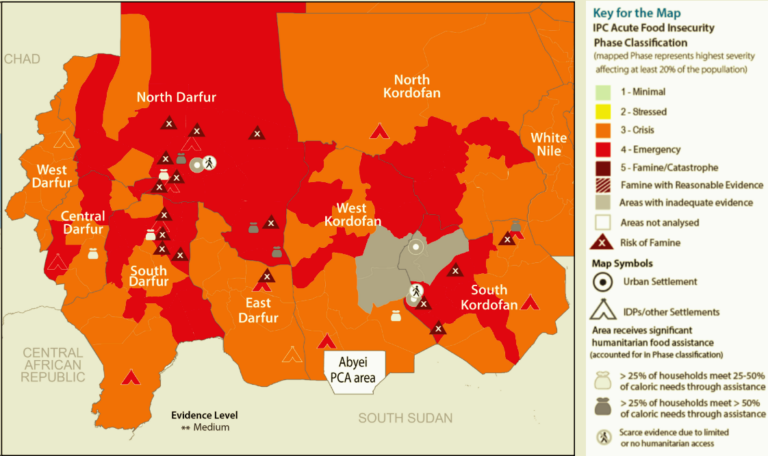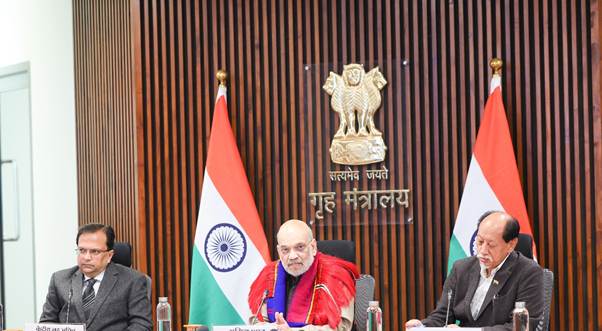
Human influence has warmed the climate at a rate that is unprecedented in at least the last 2000 years, claims IPCC report
Since around 1950, Global Mean Surface Temperature (GMST) has increased at an observed rate unprecedented for any 50-year period in at least the last 2000 years, claims the latest climate report of the Intergovernmental Panel on Climate Change (IPCC). The likely range of total human-caused global surface temperature increase from 1850–1900 to 2010–2019 is 0.8°C to 1.3°C, with a best estimate of 1.07°C, the report claims.
While pointing out that each of the last four decades has been successively warmer than any decade that preceded it since 1850, the report unequivocally blames human influence for warming the atmosphere, ocean and land, claiming widespread and rapid changes in the atmosphere, ocean, cryosphere and biosphere have occurred.
The IPCC’s Sixth Assessment Report titled “Climate Change 2021: The Physical Science Basis”, which was released on August 9, 2021, finds that over the past several decades, key indicators of the climate system are increasingly at levels unseen in centuries to millennia, and are changing at rates unprecedented in at least the last 2000 years. Observed changes in the atmosphere, oceans, cryosphere and biosphere, the report says, provide unequivocal evidence of a world that has warmed.
The report claims increases in well-mixed greenhouse gas (GHG) concentrations since around 1750 are unequivocally caused by human activities. Since 2011, concentrations have continued to increase in the atmosphere, reaching annual averages of 410 ppm for carbon dioxide (CO2), 1866 ppb for methane (CH4), and 332 ppb for nitrous oxide (N2O) in 2019. Land and ocean have taken up a near-constant proportion (globally about 56% per year) of CO2 emissions from human activities over the past six decades, with regional differences.
According to the report, in the last decade, GMST was more likely than not higher than for any multi-century average during the Holocene (past 11,700 years) and was comparable to temperatures of the Last Interglacial period (roughly 125,000 years ago).
The thirteen chapters of the Working Group I report provide an assessment of the current evidence on the physical science of climate change, knowledge evaluation gained from observations, reanalyses, paleoclimate archives and climate model simulations, as well as physical, chemical and biological climate processes. GMST increased by 0.85 [0.69 to 0.95] °C between 1850–1900 and 1995–2014 and by 1.09 [0.95 to 1.20] °C between 1850–1900 and 2011–2020. From 1850–1900 to 2011–2020, the temperature increase over land (1.59 [1.34 to 1.83] °C) has been faster than over the oceans (0.88 [0.68 to 1.01] °C).
The average rate of sea level rise was 1.3 [0.6 to 2.1] mm yr-1 between 1901 and 1971, increasing to 1.9 [0.8 to 2.9] mm yr-1 between 1971 and 2006, and further increasing to 3.7 [3.2 to 4.2] mm yr-1 between 2006 and 2018.
According to the report, human influence contributed to:
a) the increase in globally averaged precipitation over land since 1950, with a faster rate of increase since the 1980s ;
b) the pattern of observed changes in near-surface ocean salinity – Mid-latitude storm tracks have likely shifted poleward in both hemispheres since the 1980s, with marked seasonality in trends.
c) the poleward shift of the closely related extratropical jet in austral summer For the Southern Hemisphere;
d) the global retreat of glaciers since the 1990s and the decrease in Arctic sea ice area between 1979–1988 and 2010–2019 (about 40% in September and about 10% in March). There has been no significant trend in Antarctic sea ice area from 1979 to 2020 due to regionally opposing trends and large internal variability;
e) the decrease in Northern Hemisphere spring snow cover since 1950;
f) the observed surface melting of the Greenland Ice Sheet over the past two decades, even as it claims there is only limited evidence of human influence on the Antarctic Ice Sheet mass loss;
g) the warming of global upper ocean (0–700 m) since the 1970s;
h) the CO2 emissions which are the main driver of current global acidification of the surface open ocean;
i) the drop in oxygen levels in many upper ocean regions since the mid-20th century;
j) rise in global mean sea level since as least 1971 — it increased by 0.20 [0.15 to 0.25] m between 1901 and 2018. The average rate of sea level rise was 1.3 [0.6 to 2.1] mm yr between 1901 and 1971, increasing to 1.9 [0.8 to 2.9] mm yearly between 1971 and 2006, and further increasing to 3.7 [3.2 to 4.2] mm yearly between 2006 and 2018.
In New York, responding to the report findings, United Nations Secretary-General António Guterres said IPCC Working Group 1 report “is a code red” for humanity. “The alarm bells are deafening, and the evidence is irrefutable: greenhouse‑gas emissions from fossil-fuel burning and deforestation are choking our planet and putting billions of people at immediate risk. Global heating is affecting every region on Earth, with many of the changes becoming irreversible.
Climate impacts will undoubtedly worsen, he warned, while stressing there was a clear moral and economic imperative to protect the lives and livelihoods of those on the front lines of the climate crisis. He said adaptation and resilience finance must cease being the neglected half of the climate equation, and pointed out that only 21 per cent of climate support is directed towards adaptation. .
“The internationally agreed threshold of 1.5°C is perilously close. We are at imminent risk of hitting 1.5°C in the near term. The only way to prevent exceeding this threshold is by urgently stepping up our efforts and pursuing the most ambitious path,” Guterres said.
The UN Secretary-General said it is a must to act decisively now to keep 1.5°C alive. “We are already at 1.2°C and rising. Warming has accelerated in recent decades. Every fraction of a degree counts. Greenhouse‑gas concentrations are at record levels. Extreme weather and climate disasters are increasing in frequency and intensity. That is why this year’s United Nations climate conference in Glasgow is so important,” he said, adding that the viability of our societies depends on leaders from government, business and civil society uniting behind policies, actions and investments that will limit temperature rise to 1.5°C.
Guterres called on donors and the multilateral development banks to allocate at least 50 per cent of all public climate finance to protecting people, especially women and vulnerable groups. COVID-19 recovery spending must be aligned with the goals of the Paris Agreement. He said the decade‑old promise to mobilize $100 billion annually to support mitigation and adaptation in developing countries must also be met.
The IPCC report mentions present-day global concentrations of atmospheric carbon dioxide (CO2) are at higher levels than at any time in at least the past two million years. Changes in effective radiative forcing (ERF) since the late 19th century are dominated by increases in concentrations of greenhouse gases and trends in aerosols; the net ERF is positive and changing at an increasing rate since the 1970s (medium confidence).
In 2019, concentrations of CO2, methane (CH4) and nitrous oxide (N2O) reached levels of 409.9 (±0.4) ppm, 1866.3 (±3.3) ppb and 332.1 (±0.4) ppb, respectively. Since 1850, these well-mixed greenhouse gases (GHGs) have increased at rates that have no precedent on centennial time scales in at least the past 800,000 years.
“…climate change is a problem that is here, now. Nobody is safe. And it is getting worse faster,” said Inger Andersen, Executive Director of the United Nations Environment Programme, while thanking the Intergovernmental Panel on Climate Change (IPCC), the authors and everyone involved in this latest climate alarm.
Anderson said one must treat climate change as an immediate threat, just as one must treat the connected crises of nature and biodiversity loss, and pollution and waste, as immediate threats.
As recently noted by the IPCC and the Intergovernmental Science-Policy Platform on Biodiversity and Ecosystem Services (IPBES), climate change exacerbates already grave risks to biodiversity and natural and managed habitats. Ecosystem degradation damages nature’s ability to reduce the force of climate change. “And as the IPCC Working Group I report reminds us, reducing greenhouse gases will not only slow climate change, but improve air quality. It is all connected,” she said, adding that it’s time to get serious because every tonne of CO2 emission adds to global warming..
As the United Nations Framework Convention on Climate Change (UNFCCC) noted last week, just 110 of 191 Parties to the Convention have submitted new or updated NDCs ahead the next climate COP. Governments need to make their net-zero plans an integral part of their Paris commitments. They must finance and support developing countries to adapt to climate change, as promised in the Paris Agreement. They must decarbonize faster. Restore natural systems that draw down carbon. Cut out methane and other greenhouse gases faster. Get behind the Kigali Amendment to the Montreal Protocol to cut the climate impact of the cooling industry. And every business, every investor, every citizen needs to play their part.
“We can’t undo the mistakes of the past. But this generation of political and business leaders, this generation of conscious citizens, can make things right. This generation can make the systemic changes that will stop the planet warming, help everyone adapt to the new conditions and create a world of peace, prosperity and equity,” she said. He asked: “Climate change is here, now. But we are also here, now. And if we don’t act, who will?”
Guterres said the solutions are clear – “Inclusive and green economies, prosperity, cleaner air and better health are possible for all if we respond to this crisis with solidarity and courage. All nations, especially the G20 and other major emitters, need to join the net-zero emissions coalition and reinforce their commitments with credible, concrete and enhanced nationally determined contributions and policies before COP26 in Glasgow.”
Calling for an immediate action on energy, the UN Secretary-General said without deep carbon pollution cuts now, the 1.5°C goal will fall quickly out of reach: “This report must sound a death knell for coal and fossil fuels, before they destroy our planet. There must be no new coal plants built after 2021. OECD [Organisation for Economic Co-operation and Development] countries must phase out existing coal by 2030, with all others following suit by 2040. Countries should also end all new fossil fuel exploration and production, and shift fossil-fuel subsidies into renewable energy. By 2030, solar and wind capacity should quadruple and renewable energy investments should triple to maintain a net-zero trajectory by mid-century.”
– global bihari bureau





